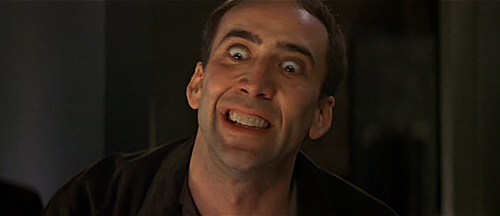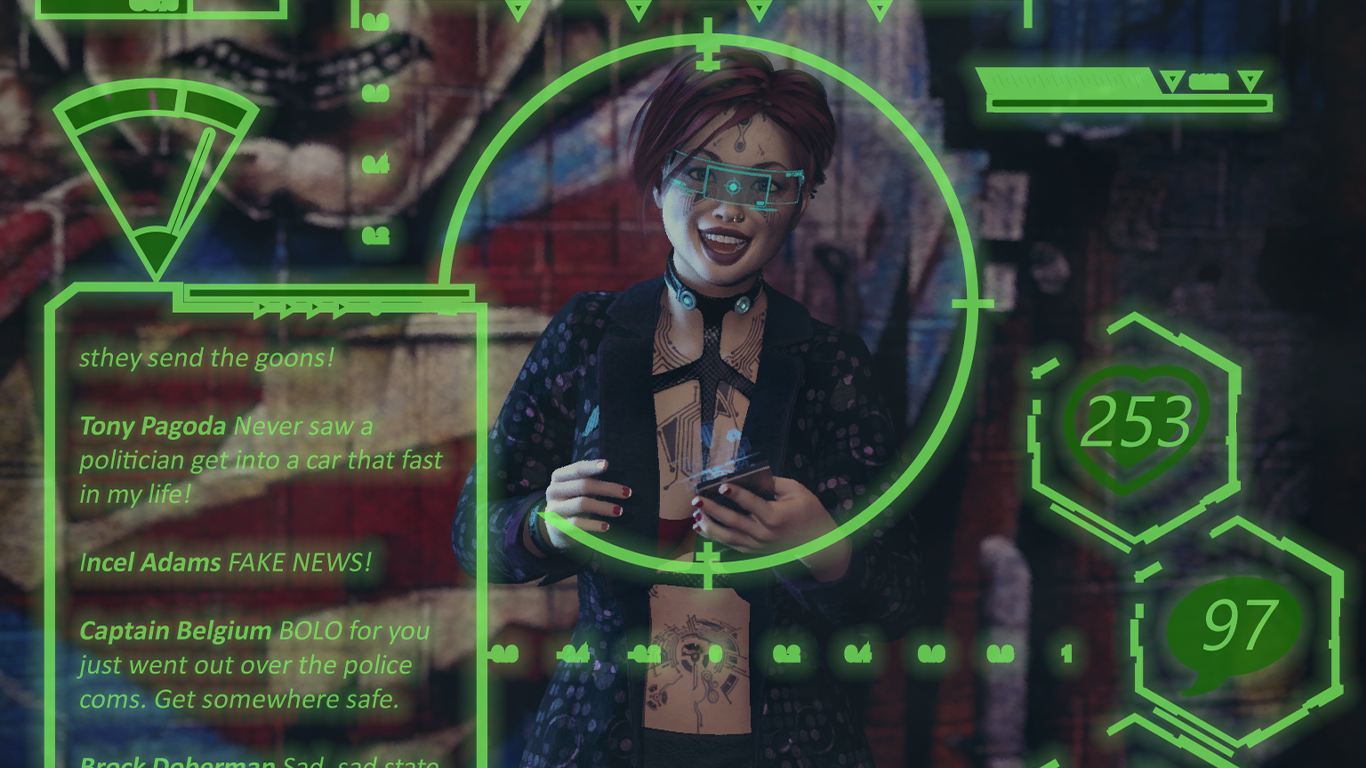We may earn money or products from the companies mentioned in this post.
I’ve gotten bad at reading actual books (regardless of format), so in 2018 I re-started an old livejournal tradition of keeping a running list of the books that I’d read that year. My thinking was that knowing the actual number of books I’d read might convince me to read a real book instead of clicking on another listicle or hot take. 2018’s numbers weren’t great. I think it was right at 20 books. This year I made a little progress, but I’m still not up to the 30+ books a year I used to read. Here’s this year’s list:
1. Tommy Vol. 1, John Ulloa & Juan Navarro: Tommy is an evil serial killer bunny and the main character’s imaginary friend. The comic is very much in the Johnny the Homicidal Maniac tradition and the art is by Juan, which means its’ awesome.
2. Jim Henson: The Biography, Brian Jay Jones: This is probably largely a matter of me imposing my own reality filters on the story, but the most unintentionally disappointing revelation here was what an enormous role class privilege played in Henson’s success. Don’t get me wrong, Henson was incredibly hard-working and driven, but if he’d had to support himself with a regular job when he was a young adult, we probably wouldn’t have Sesame Street or Muppets.
3. Normal, Warren Ellis: This novella is a murder mystery at an asylum for futurists whose work has driven them off the deep end. There’s less depravity and unsettling weirdness than the typical Ellis story, but still worth a read.
4. Happy Doomsday, David Sosnowski: I started reading this because I was bored and it was in my Kindle Cloud reader. I assume I grabbed it as a prime freebie at some point. It’s a (I think) YA novel about the apocalypse. There’s not really much there, but it’s a readable enough apocalypse survival story if you can get past some Indigo Child nonsense (the POV character is autistic) early on.
5. Design Patterns of Successful Role-Playing Games, Whitson John Kirk III: This basically covers common ways of constructing game rules and the benefits and drawbacks of different approaches. I thought it might help me figure out how to design games.
6. Black, Kwanza Osajyefo & Tim Smith 3: The premise of this comic is “what if there were superpowers, but only black people had them?” The first volume is largely set-up, but I look forward to reading more.
7. Infinite Detail, Tim Maughan: This is from the Warren Ellis reading list and is very (Wiliam) Gibsonesque in that the author starts out with a cool cyberpunky premise and then doesn’t really do much with it. If that’s what you want, I’d recommend going with Gibson instead. His books are shorter and there’s usually a decent crime/adventure story happening around the mostly unexplored premise. Here it’s mainly just world exposition, a relationship thread, and set-up for a reveal that most people probably figured out in chapter 1.
8. Bullshit Jobs: A Theory, David Graeber: This is about how a lot of jobs serve no real purpose, and most people working those jobs know it. Turns out I’m a duct taper.
9. Die Volume 1: Fantasy Heartbreaker, Kieron Gillen, Stephanie Hans, & Clayton Cowles: This comic is basically the same premise as the D&D cartoon, but the fantasy world is pretty dark and the kids come back traumatized. The story is set 20 (?) years later when the characters have to go back to the fantasy world. Like Black, it seems like the start of a great story.
10. Draugr & Draculas, Joshua LH Burnett: This is Josh‘s excellent DCC zine about vampires and vikings. I really enjoyed it, and it was the thing that finally convinced me to check out the DCC rulebook (which I haven’t finished yet–I put it down somewhere in the spell section and haven’t picked it back up).
11. The Princess Bride RPG, Steffan O’Sullivan: I backed the kickstarter for this and then waited over a year for the book. You’d think that much of a delay would give them plenty of time for editing. It did not. Other than the editing, the main problems with the game are the ones that nearly all licensed games suffer from: This Was A Thing In The [Movie/Show/Book] So We Need a Game Rule For It syndrome and lots of forced ‘memberberries It’s fine for what it is, but I was hoping for something much better. System-wise, I now see why so many people compare the QAGS system to Fudge.
12. The Principia Discordia, Greg Hill & Kerry Thornley: Sometimes I go to the Principia for a quote and end up reading the whole book.
13. Advertising Shits In Your Head: Strategies for Resistance, Vyvian Raoul & Matt Bonner: The main focus of the book is adbusting/culture jamming and it makes for an interesting read even if you don’t plan to actually join the fun.
14. Appendix N: The Literary History of Dungeons & Dragons, Jeffro Johnson: I didn’t know when I started reading the book that the author was one of the Bubble Guppies or whatever they call themselves who tried to tank the Hugos because they were giving awards to people who weren’t straight white men. The author’s views don’t really show up until a few chapters in and are completely absent from several entries, but when they show up they’re very off-putting. If you cut those parts out, the book provides enough information about the books in Appendix N to get a good idea of which ones you might want to read.
15. Radicalized, Cory Doctorow: This is a collection of 4 short stories about people becoming radicalized. The first and third stories are Black Mirror territory, the second is about an alien super-hero who tries to fight the power and ends up making things worse, and the last one is survivalist fantasy gone sideways. This was one of my favorite reads of the year.
16. One Word Kill, Mark Lawrence: I’m not sure if this was written before or after Stranger Things, but there’s definitely a “Stranger Things, but the kids are a little older and British” vibe to it. It’s a very straightforward “Kids on Bikes” style adventure story, but I enjoyed it enough that i might read the next book in the series when I’m in the mood for some mindless escapism.
17. Dungeons and Dragons: Witchcraft, Suicide, Violence, Mary Dempsey, Pat Dempsey, Pat Pulling: Ok, this probably isn’t long enough to count as a book, but somebody posted a PDF of this Satanic Panic propaganda and I put it in the list mostly so I could laugh at it again when I looked at the list.
18. Hate Inc., Matt Taibbi: If you read Taibbi’s columns, you’re probably familiar with his general thoughts on how the media is awful and broken. This is a deeper dive into the phenomenon.
19. Rendezvous with Oblivion: Reports from a Sinking Society, Thomas Frank: This is another book about how we’re all doomed that collects short pieces from Frank written over the last several years.
20: Thieves’ World Book 1: Thieves’ World, edited by Robert Lynn Asprin & Lynn Abbey: I read a bunch of these in high school, and decided to re-read them as inspiration for the City of 10,000 Daggers project. They hold up pretty well, especially in the area of weird-ass magic.
21: Old Hungarian Fairy Tales, Baroness Orczy: This is another one that I didn’t really set out to read in its entirety but did anyway.
22: Thieves’ World Book 2: Tales from the Vulgar Unicorn, edited by Robert Lynn Asprin & Lynn Abbey: These are quick reads. What can I say?
23: Thieves’ World Book 3; Shadows of Sanctuary, edited by Robert Lynn Asprin & Lynn Abbey: And I’m about halfway through book 4 now.
24: Medallion Status, John Hodgman: Anecdotes about Hodgman’s life as a sort of famous person who is sometimes on TV framed by his quest for validation through consumerism.
25+: I also read the Ross Fulton Occult Detective story or stories (I have no sense of time) that Leighton Connor released this year, but since I read them in an editorial capacity I didn’t put them on the list.
I think there are 10 or 15 Thieves World books, so my 2020 list should have plenty of padding.





